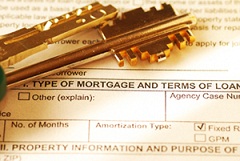Your finances in France
Finance and investments in France are not particularly different from the UK. There is a double taxation agreement which means that tax paid in one country acts as a credit in the other. But when it comes to some types of investments the rules can be different and it is a good idea to seek professional advice before deciding whether to transfer assets to France or leave them in the UK. Investments that have been set up to be tax efficient in the UK may not be as effective in France. But in general nearly every kind of investment found in the UK has an equivalent in France. The most important thing to remember is to seek sound advice regarding savings and investments from an adviser who is aware of the French tax authority’s views on UK products such as PEPs/ISAS, and knows the differences between the French and UK financial environments.
Bank accounts:
To handle your day-to-day finances you will need to open a bank account and as in the UK, this is a relatively simple process in France. Opening a bank account means simply going into your local bank and filling in the forms. Identification such as your passport and a utility bill are usually required. Cheque books and debit cards usually arrive within a couple of days. However the operating rules in France are different and writing a cheque on an overdrawn account is illegal. You can be fined and even banned from owning a cheque book. Fees are generally higher and you will probably pay for each transaction as well as an annual charge for your debit card. French banks will allow you to pay in cheques in sterling but they will charge extra and tend to discourage customers from doing this regularly. Cash withdrawals on your card are always debited immediately but with other transactions, you have a choice between immediate or at the end of each month. Banks also offer deposit accounts, tax free accounts (up to a certain limit) and special account for young people aged under 25.
Non French bank accounts:
There is no reason why you can’t keep your UK bank account when you move to France. But you will need to check with your bank that this is okay and notify them of your change of address. Retaining a UK bank account can be very useful for when you return for trips or holidays or for when buying over the internet from UK suppliers. Some goods, for example greenhouses, are cheaper to buy in the UK even with delivery costs and having a UK sterling bank account makes this easier. You are legally required by the French tax authorities to declare all foreign bank accounts.
Currency transfers:
Currency fluctuations can have a serious effect on your income if you are relying, for example, on a UK pension in sterling that is transferred into your euro bank account. There are many foreign exchange specialists that offer forward contract services and you fix a currency rate for up to two years and effectively protecting yourself against major currency fluctuations. Regular payments plans are also available through currency brokers. Another currency protection option is to create a buffer investment by putting any surplus capital into euro investments.
Budgeting:
As you retire and draw your final salary, the day-to-day cost of living becomes ever more important. Working out your monthly living costs and creating a yearly plan of unavoidable outgoing costs can help with planning. Taking the time to shop around for the best deals could potentially save hundreds of euros and having an emergency cash reserve that is easily accessible can help avoid sudden large payouts.
Bank loans:
Banks and other lenders operate in a very similar manner to those in the UK although they do tend to be more cautious and ask for more information. To take out an unsecured loan you need to be resident in France and have a steady income. You need to provide proof of your income and there is a credit scoring system as in the UK. Many lenders charge an administrative fee and some require life insurance to be taken out. Types of loans are very similar to those available in the UK. Personal loans are usually for three months to five years and can be for any purpose. There are also car loans and home improvement loans.
Taxes:
There are two kinds of local tax, both based on the notional letting value of the property. The taxe foncière is paid by the owner. The taxe d’habitation is paid by the occupiers, regardless of whether they are tenants or owners. The amount varies from commune to commune and is means tested. If you are retired, you may get a reduction or be exempt. The French direct tax system is complicated and all taxation is through self-assessment. When you move to France, it is your responsibility to obtain a tax return from your local Inspecteur des Impôts. You are taxed as a family unit, with each spouse and dependent child being considered to earn a share of the household income. Unlike the UK, the tax year runs from 1st January to 31st December. The tax return, the déclaration des revenus, must be returned by the end of May. If done online the deadlines are a little later. There are fines and penalties for late returns. Tax is paid in the year following the year in which the income was earned. Wealth tax – l’impôt de solidarité sur la fortune – is tax on the value of your assets on the 1st January each year. The tax is payable on a banded system over and above a nil rate threshold. If you plan ahead, preferably before you move to France, you can legitimately put many of your investments out of the reach of the French tax system.


